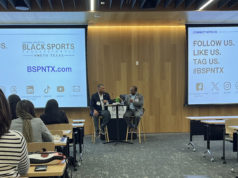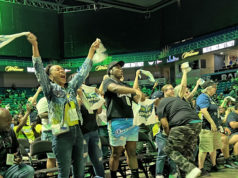Back in the early ’90s, Dallas ruled rock. Not just in North Texas but arguably the entire Southwest. Dallasites Edie Brickell & The New Bohemians, Tripping Daisy, and Course of Empire had gone national, and after they took off, major labels swooped in and picked up a few lesser-known acts. Dallas’ rock reign was so all-encompassing that even two mostly Fort Worth-based bands on the national radar, The Toadies and Flickestick, claimed Dallas, not Fort Worth, as their home turf.
One semi-Fort Worth group on the verge was Tabula Rasa, whose lineup reads like an introduction to North Texas indie-rock. After the band broke up in 1994 –– after forming in ’92 and releasing a major label record, Confined in Skin and Bones, in ’93 –– TR members went on to found such legendary North Texas indie-rock outfits as Sunward, The Chemistry Set, and, with Calhoun’s Tim Locke, Grand Street Cryers and Blue Sky Black.
To celebrate Tabula Rasa’s 20th anniversary, the band is getting back together, playing a show in Dallas at Club Dada on Saturday, Aug. 25, with Dallas singer-songwriter Salim Nourallah, Sunward (celebrating an EP release), and a temporarily reunited Chemistry Set.
Some TR members are still in the area. Frontman and native Fort Worthian Ezra Boggs is completing his master’s degree in Systematic Theology at Veritas School of Theology and is a professor of Apologetics at Porterbrook Seminary in Fort Worth, and bassist Own Kinser is the owner/facilitator for the Center for Compassionate Communication of Fort Worth, leading workshops in empathy, conflict resolution, and self-awareness/expression development. However, drummer Jason LaMarca lives in Atlanta, and multi-instrumentalist Stephen Duncan is in Maryland (and is another academic, teaching American cultural history at the University of Maryland).
Local musician and writer Eric Griffey credits Tabula Rasa with exposing him to local music. The early thirtysomething points back to a TR show at The Hop (now The Aardvark), when he was only 15 years old. “It was only the second or third local show I’d ever seen,” Griffey said. “It was absolutely mesmerizing.”
The band’s future as a household name, Griffey said, seemed at the time to be a given, which fueled the intensity (and popularity) of Tabula Rasa’s local shows. “They were just one of those bands you had to see before they broke,” Griffey recalled.












